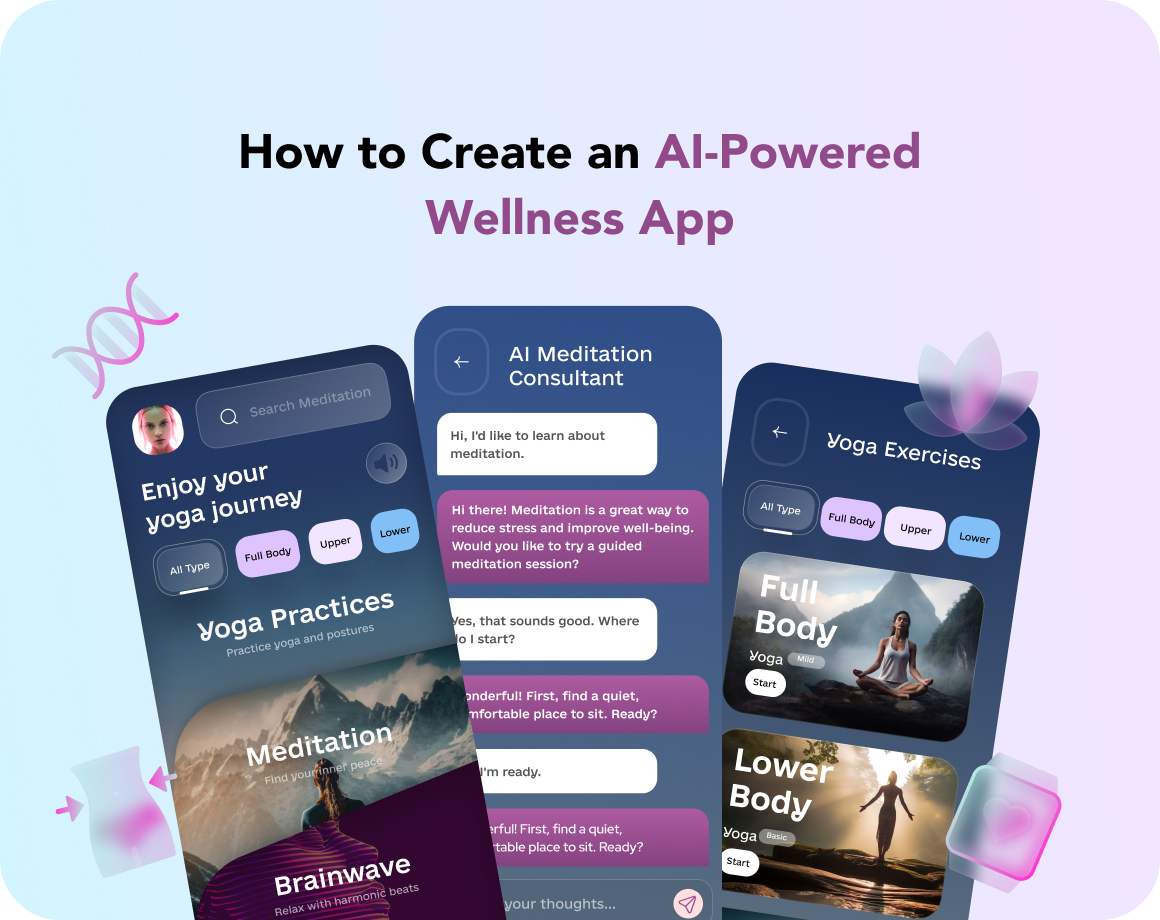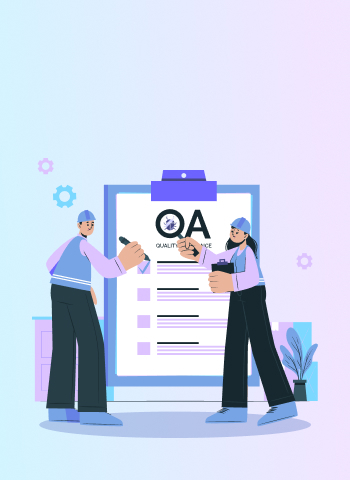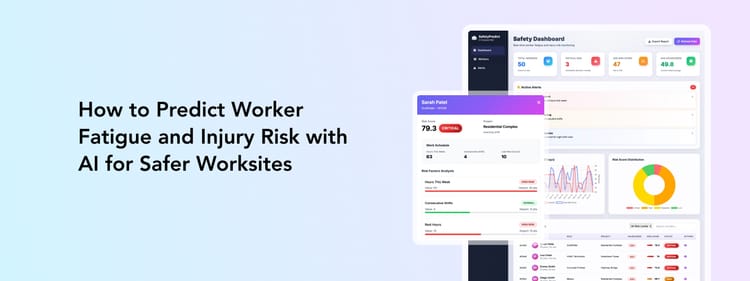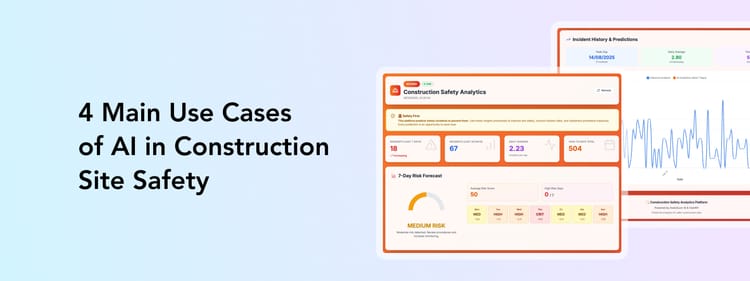Have you ever wondered what it would be like if an app could analyze your dreams or predict your nutrition goals? Imagine waking up to an app that not only tracks your sleep patterns but also provides insights into your dreams, helping you better understand your subconscious mind.
This is not science fiction; it’s a reality. With the advancements in artificial intelligence, creating an AI-powered wellness app is now possible.
In this article, we'll discuss the main applications of AI in the wellness industry, the top features of an AI-based wellness mobile app, and the essential steps to developing such an innovative product.
How Artificial Intelligence is Changing the Wellness Industry
Artificial intelligence has become a trend in health and wellness apps for a good reason. AI technology transforms them from simple trackers to intelligent companions that analyze users’ input and cater to individual needs.


AI-powered yoga and meditation app concept by Perpetio
According to the Global Wellness Institute, artificial intelligence is changing the industry in five main ways:
- Personalized, real-time health recommendations: By assessing every heartbeat, step, and breath, AI provides tailored, real-time health recommendations. As wellness data becomes more integrated across multiple sources, such as sleep devices and continuous glucose monitors, users can expect more comprehensive and accurate health insights.
- Hyper personalization in hospitality and SPA: Hotels and spas use real-time data and predictive analytics to offer wellness experiences tailored to individual preferences. For instance, AI can anticipate guests' needs based on their preferences, such as providing soothing amenities for guests seeking rest and recovery.
- AI in biotechnology and medicine: AI aids the biotechnology industry from drug discovery to clinical decision-making. In clinical settings, AI assists in interpreting medical images and writing clinical notes, reducing clinician burnout. AI's ability to analyze biomarkers and patient data paves the way for more precise therapies and innovative treatments, such as neural prostheses and genome editing.
- Improved operational efficiency: By automating data entry, enhancing customer service, and optimizing resource allocation, businesses can reduce manual errors and streamline operations.
- Ethical use of AI in wellness: Ensuring the ethical use of AI involves principles such as protecting human autonomy, promoting well-being and safety, and ensuring transparency. AI technologies should support human decision-making and contribute to overall well-being while being transparent and accessible.
When it comes to the main applications of AI for wellness mobile products, these are:
- Personalized recommendations: AI algorithms analyze user data, such as activity levels, dietary habits, and sleep patterns, to provide customized recommendations on improving their lifestyle and health
- Predictive analytics: By relying on machine learning, AI-powered apps can predict future health trends and potential issues based on current data. For example, AI can be used to predict cycle trends in women's health apps
- Natural language processing enables wellness app communication features like chatbots to understand and interact with users through human-like, naturally-sounding language
- Behavioral insights: AI can track and analyze user behavior over time, identifying patterns and providing insights that help users better understand their habits. For example, users with migraines or other chronic conditions can track their symptoms and habits to receive insights on triggers and patterns
- Enhanced user engagement: AI-driven features like virtual coaches, chatbots, and interactive content keep users engaged and motivated. These tools offer real-time feedback, encouragement, and reminders, ensuring users stay on track with their wellness goals
Types of Wellness Apps that Can Benefit from AI
Wellness apps come as an umbrella term for a wide variety of apps helping users organize their daily lives and health. Artificial intelligence technology can come in handy for most wellness app types, as it offers personalization, data-driven insights, and automation.
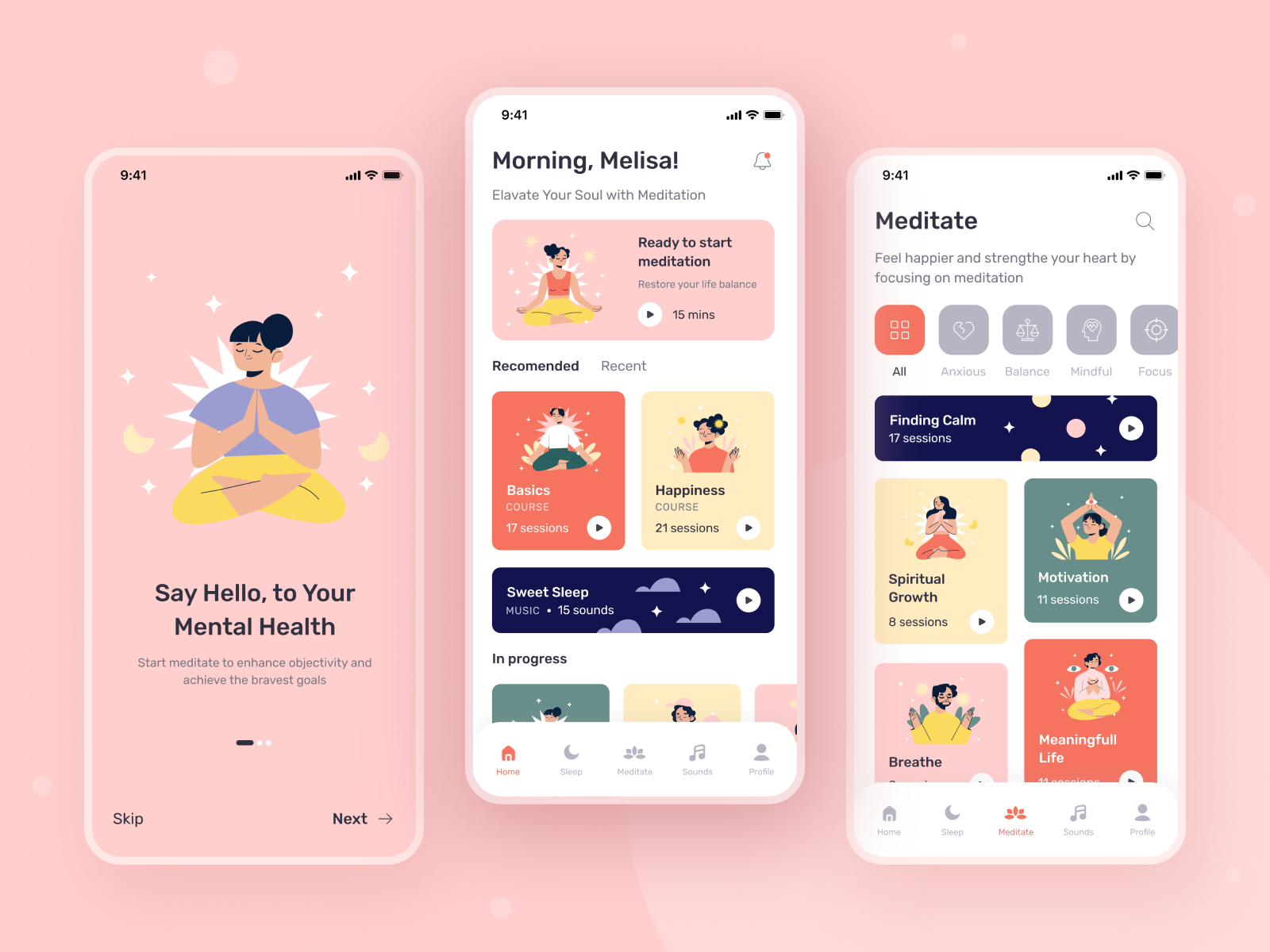
Among the main types of wellness apps that can enjoy the advantages of AI are
- Sleep apps for sleep quality tracking, dream journaling and analysis, and sleep improvement recommendations
- Yoga and meditation apps for personalized practice recommendations and smart practice scheduling
- Nutrition and meal planning apps for recipe recommendations, calorie intake calculations, and goal-based diet suggestions
- Active lifestyle apps for smart exercise recommendations, AI virtual coaching, and motivational chatbots
- Chronic disease management apps for defining symptom patterns and offering management solutions based on tracked symptoms
- Pregnancy apps for insights based on the user’s pregnancy stage, individual health data, and tracked symptoms. Plus, emotional support and smart recommendations through chatbots
- Mental health apps for mood and symptom analysis based on tracked data, emotional support and advice in chatbots, and AI-driven cognitive behavioral therapy (CBT) exercises and mindfulness practices
As you can observe, AI functionality can benefit a wide variety of apps, no matter their type and focus. If you set your mind to it, you can integrate AI for a better user experience virtually in any wellness app.
Top AI-based Features for a Wellness App
We have already discussed how AI technology changes the wellness industry overall and caters to different wellness app types. Let’s now discover the top AI features to include in your wellness app to take it one level up.
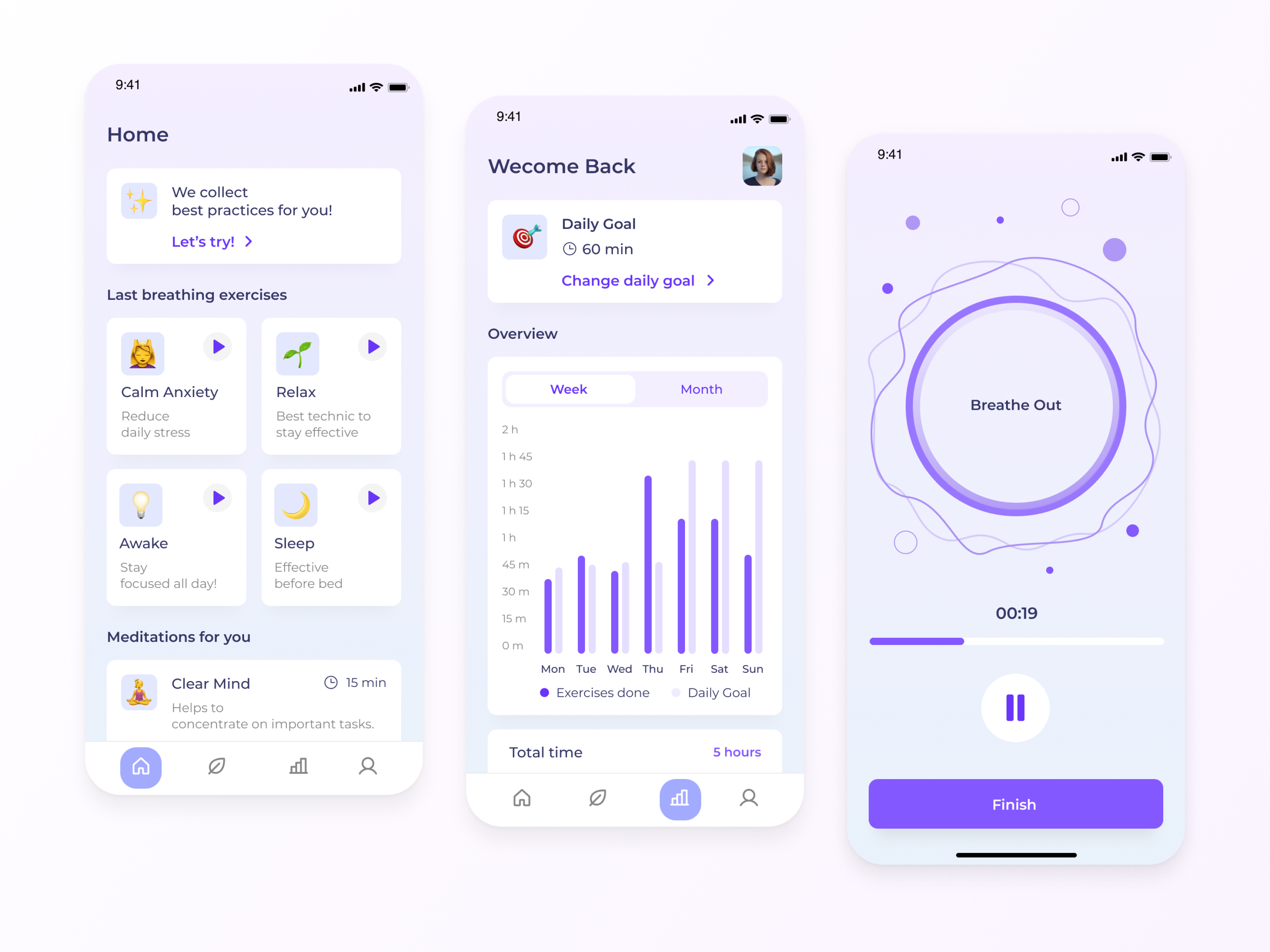
Support and advice chatbot
A well-trained AI chatbot can offer round-the-clock support and personalized advice on a variety of health and fitness topics.
In a recent mobile app chatbot study, users positively reported chatbots’ personalized, humanlike interactions. However, improper responses and assumptions about user personalities led to a loss of interest. The study highlighted the importance of using comprehensive and diverse learning data to train the chatbot to avoid these pitfalls.
What’s more, users appreciated the chatbot’s accessibility and the judgment-free environment it fostered, which made them feel more comfortable sharing sensitive information. Additionally, chatbots' 24/7 availability means they can provide immediate crisis care, though current chatbots still struggle with accurately identifying and appropriately responding to crises.
Personalized recommendations
AI can analyze user data to provide personalized recommendations for various wellness activities, such as exercise routines, dietary plans, and mental health practices. By introducing machine learning algorithms, the app can adapt these recommendations based on user feedback and selected options, making them more and more relevant overtime.
Pattern analysis
AI can detect patterns in user behavior and health metrics to identify trends and potential issues before they become significant problems. For example, it can track sleep patterns, physical activity, and mood changes, providing insights and suggestions to improve overall wellbeing, like noticing higher stress levels.
Automatic reminders and predictions
Automated reminders for activities such as workouts, medication, hydration, and mindfulness exercises can help users stay on track with their wellness goals. For example, users can receive a notification to take their medicine on time or drink a glass of water to reach their daily hydration goal.
Dream interpretation
If you are going with a sleep and dream app, you can integrate a feature that interprets users' dreams as we did in Perpetio. Users can send a message to a dedicated chatbot describing their dream themes and images. Then, they receive a detailed explanation of the psychological and subconscious meaning of the dream.
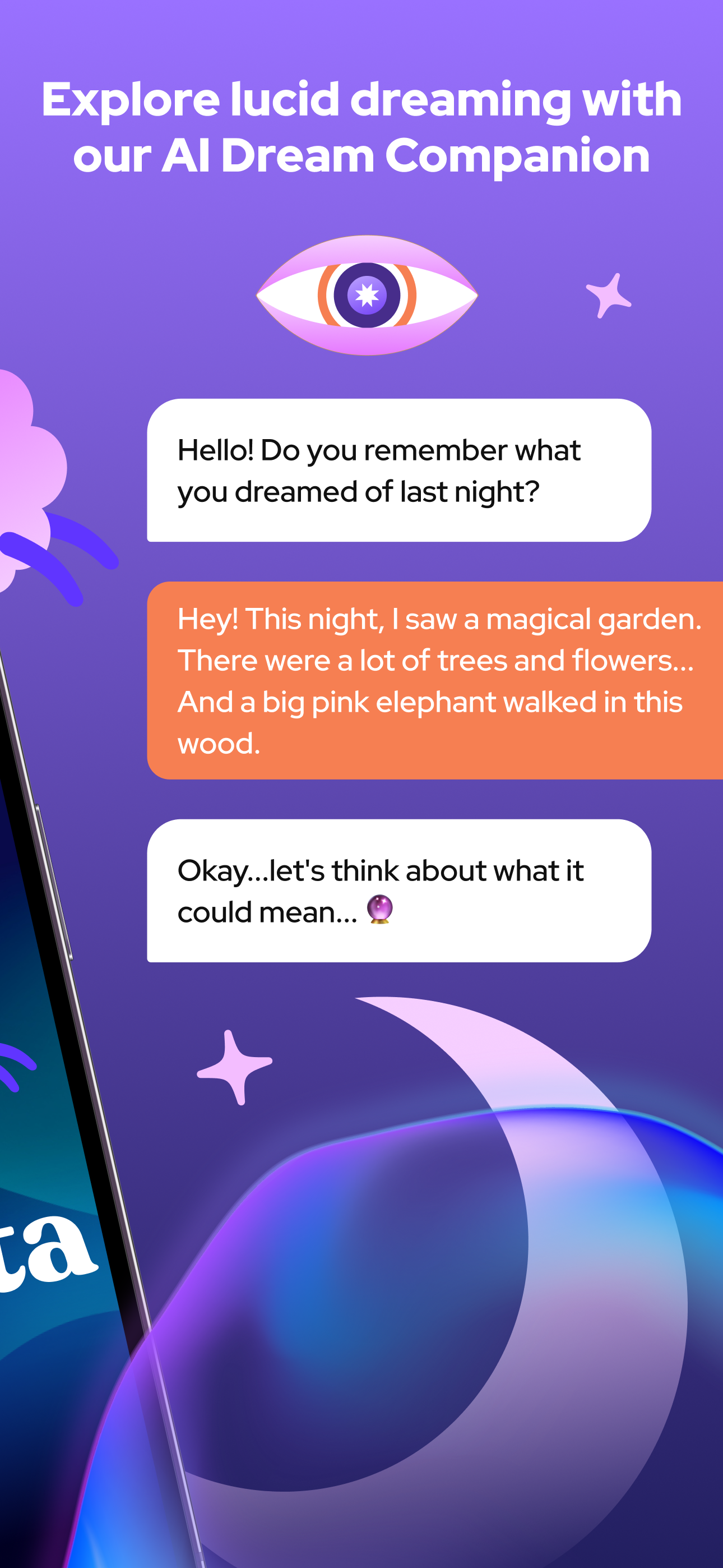
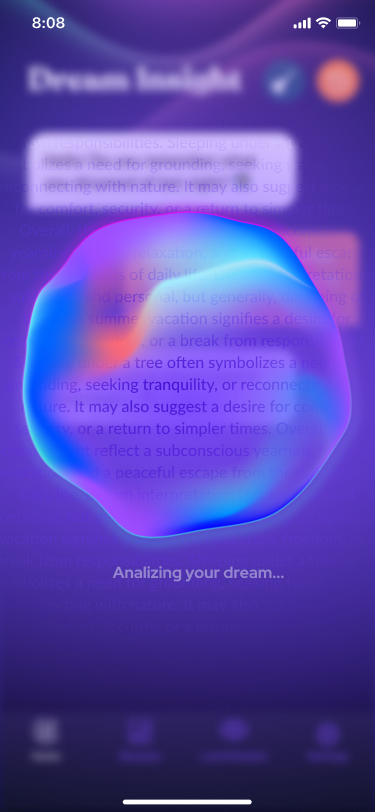
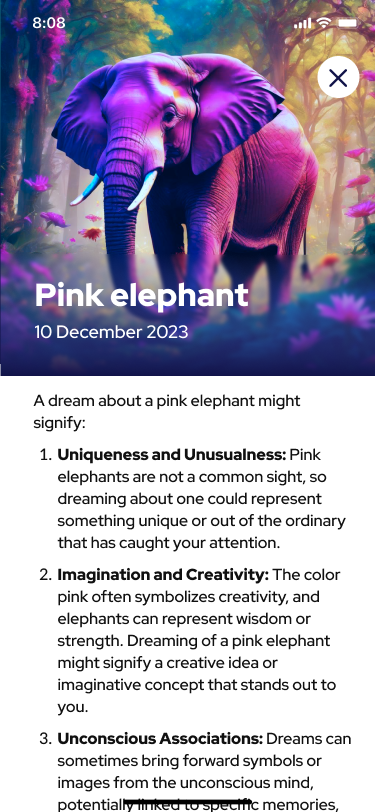
Perpetio's Dreamota app
Virtual coaching
A virtual fitness coach powered by AI can provide personalized workout plans, track progress, and offer real-time feedback on exercise form and technique.
For instance, Perpetio's fitness app uses face recognition technology to count exercises such as squats, so users don’t have to count themselves or check their phones constantly. It allows users to focus on their workouts and set goals more effectively. Using computer vision and motion analysis, the app ensures users perform exercises correctly and safely, reducing the risk of injury and improving the effectiveness of their workouts.

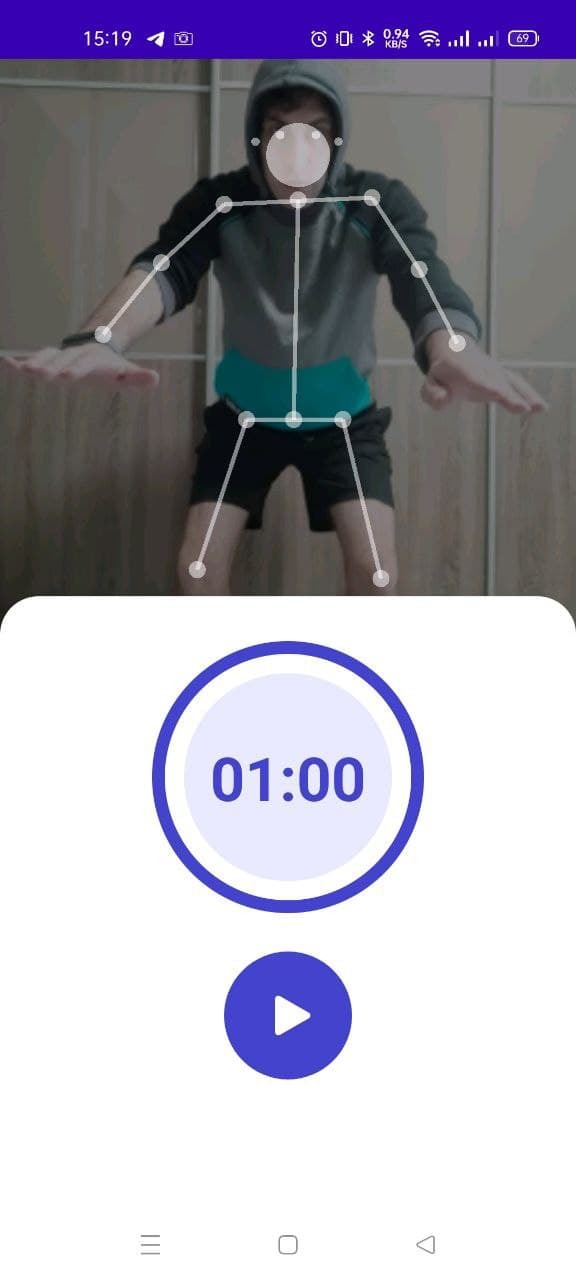
Perpetio's AI-powered fitness app
How to Integrate AI Functionality into a Wellness App
It's essential to understand that AI is not one technology that works the same way for every feature. There are various types of features, such as facial and object recognition, text generation, image generation, and more. Each of these features requires different approaches and technologies. Here’s a detailed look at how to integrate some of these AI functionalities into your wellness app.
Text generation AI
For chatbots, the key technology is Large Language Models (LLMs). To integrate text generation capabilities like chatbots, use APIs from large language models such as GPT-4. Customizing the model can help match the specific tone of voice and topics relevant to your wellness app. This involves integrating APIs like OpenAI’s GPT-4 API, collecting and preprocessing data that reflects your app’s intended communication style and topics, and fine-tuning the model’s parameters using this data to better align with your specific needs.
Image generation AI
For image generation, the Stable Diffusion Model is essential. On the server side, you need to deploy the Stable Diffusion model using Python and utilize the Stability AI SDK to facilitate interactions between the app and the image-generating server. Development tools like Visual Studio Core are useful for efficient coding and deployment. On the application side, your development team will set up API communication between the server and your app. The UI/UX designer will work on user interfaces that allow users to input parameters or prompts for generating images.
Facial and object recognition AI
Facial recognition involves key technologies like ARKit, OpenCV, DeepAR, Amazon Rekognition, and Kairos. Tool selection depends on your development environment and platform. For iOS devices, ARKit is useful as it can project infrared dots and create a depth map of a face. Cross-platform tools like OpenCV and Amazon Rekognition offer broader compatibility.
Let’s take an example of iOS face recognition app development with ARKit. Implementing facial recognition involves using ARKit to detect faces and create face anchors, generating a 3D model of the face using ARSCNFaceGeometry, and applying 2D textures to the 3D model using texture mapping techniques.
For object recognition, machine learning models and ARKit are crucial. Your development team will start with data collection to gather extensive datasets of objects relevant to your wellness app. Then, they need to train the object recognition models using machine learning frameworks like TensorFlow or PyTorch. Integrate these models into your app using ARKit for iOS to detect and track objects in real-time. For broader device compatibility, solutions like OpenCV can be used across different platforms.
Dreamota: Perpetio’s AI Sleep App
At Perpetio, we created our very own Dreamota, an AI sleep app designed to offer personalized dream interpretation.
Dreamota uses OpenAI’s GPT API for text generation. This integration allows our app to analyze user prompts about their dreams and generate comprehensive interpretations based on psychological insights and common dream symbolism.
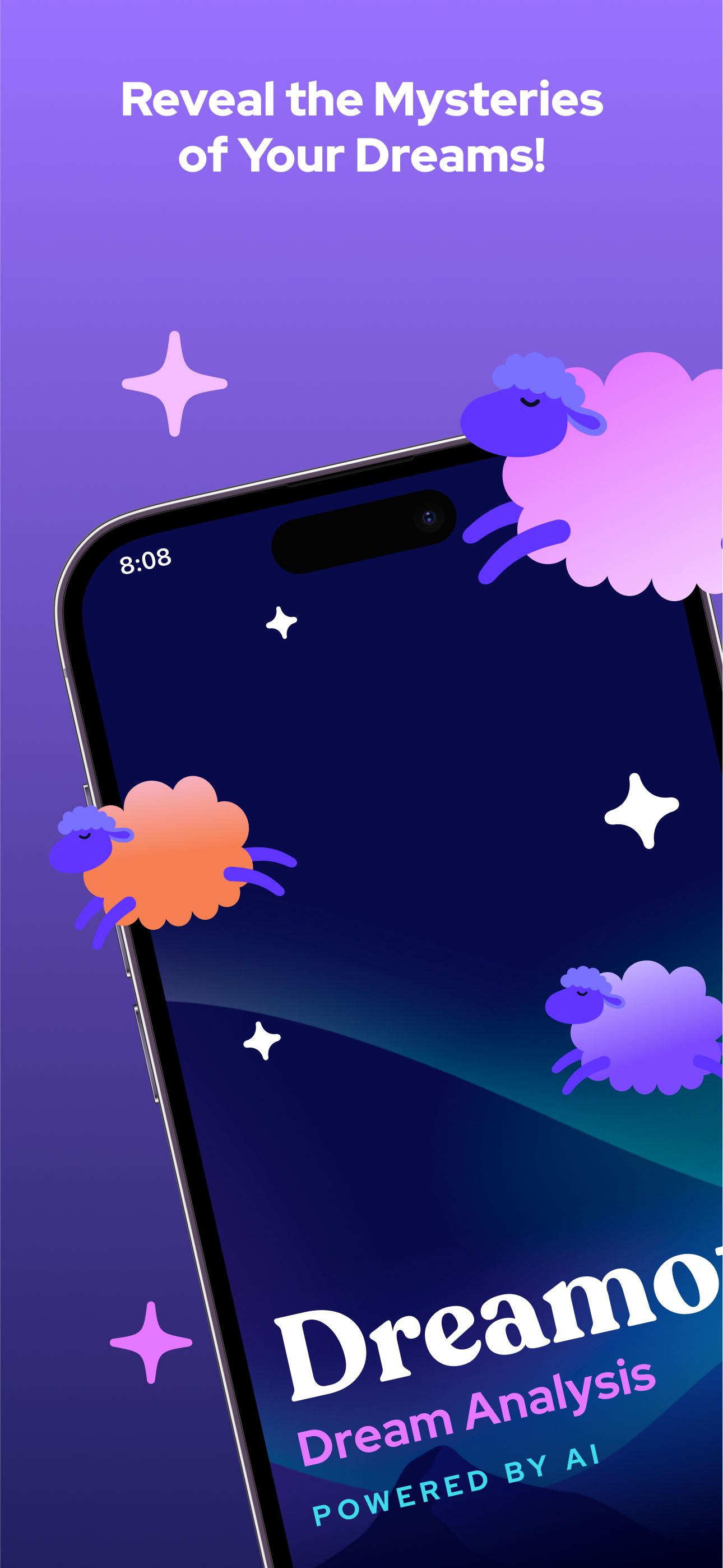
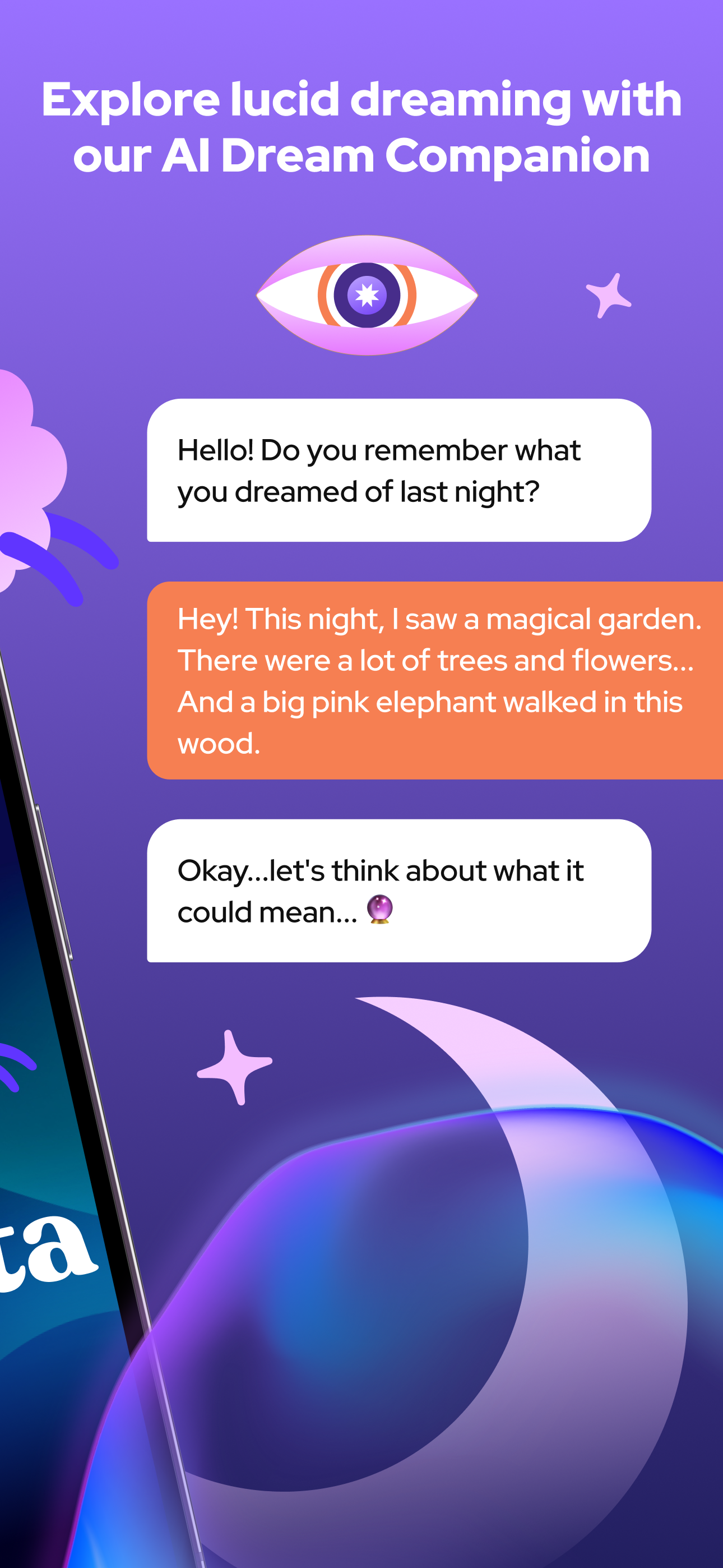
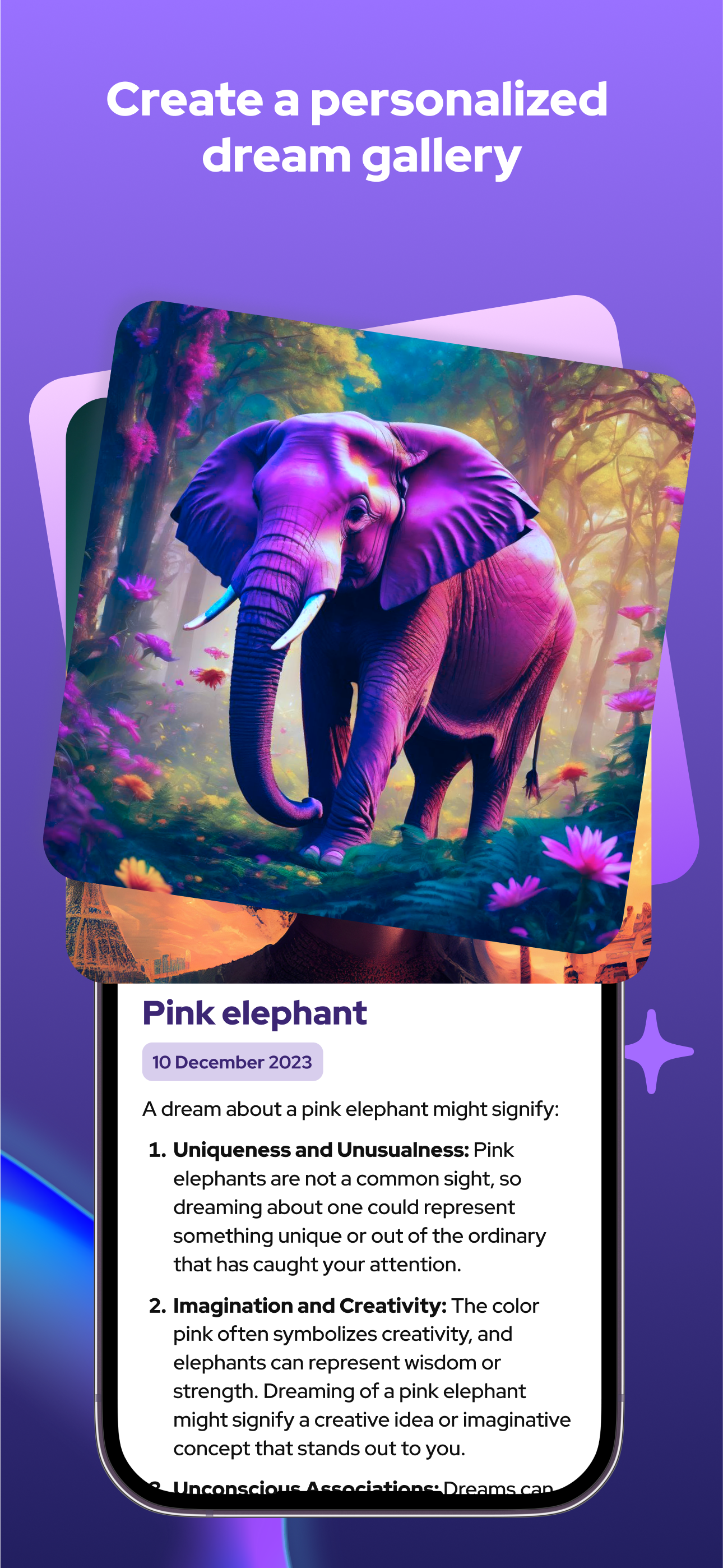
Perpetio's Dreamota app
Top features of Dreamota:
- AI dream interpretation: Users can describe their dreams in natural language to the app’s chatbot interface. The AI analyzes the description and generates detailed interpretations, providing insights into the symbolic meanings and potential psychological significance of the dream content.
- Lucid dreaming tutorials: Dream Insight includes tutorials and techniques for achieving lucid dreaming, empowering users to gain control and awareness within their dreams.
- Dream glossary: Explore a comprehensive glossary featuring common dream images and their interpretations, helping users understand recurring themes in their dreams.
- Articles on healthy sleep and dreaming phenomena: Access informative articles curated by sleep experts on topics ranging from improving sleep quality to exploring various aspects of dreaming.
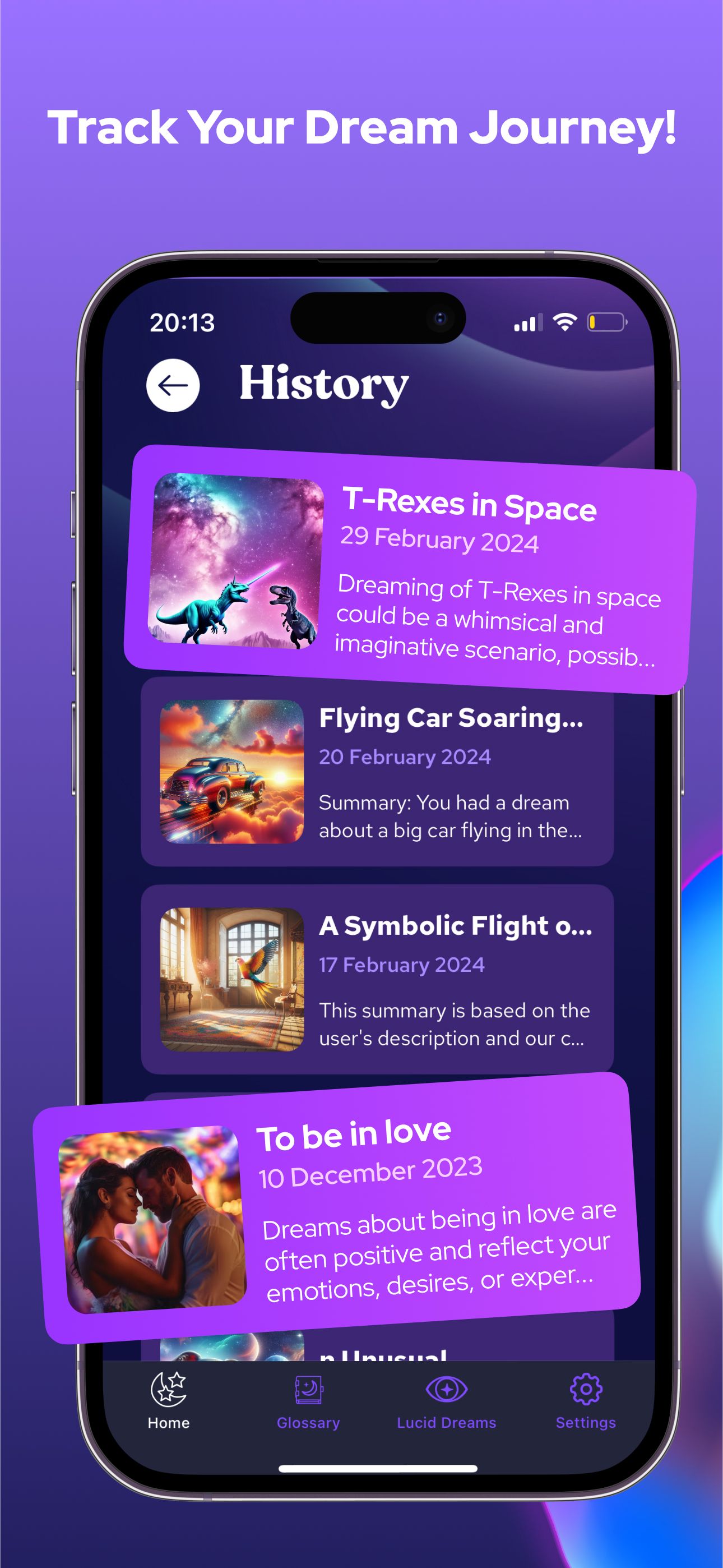
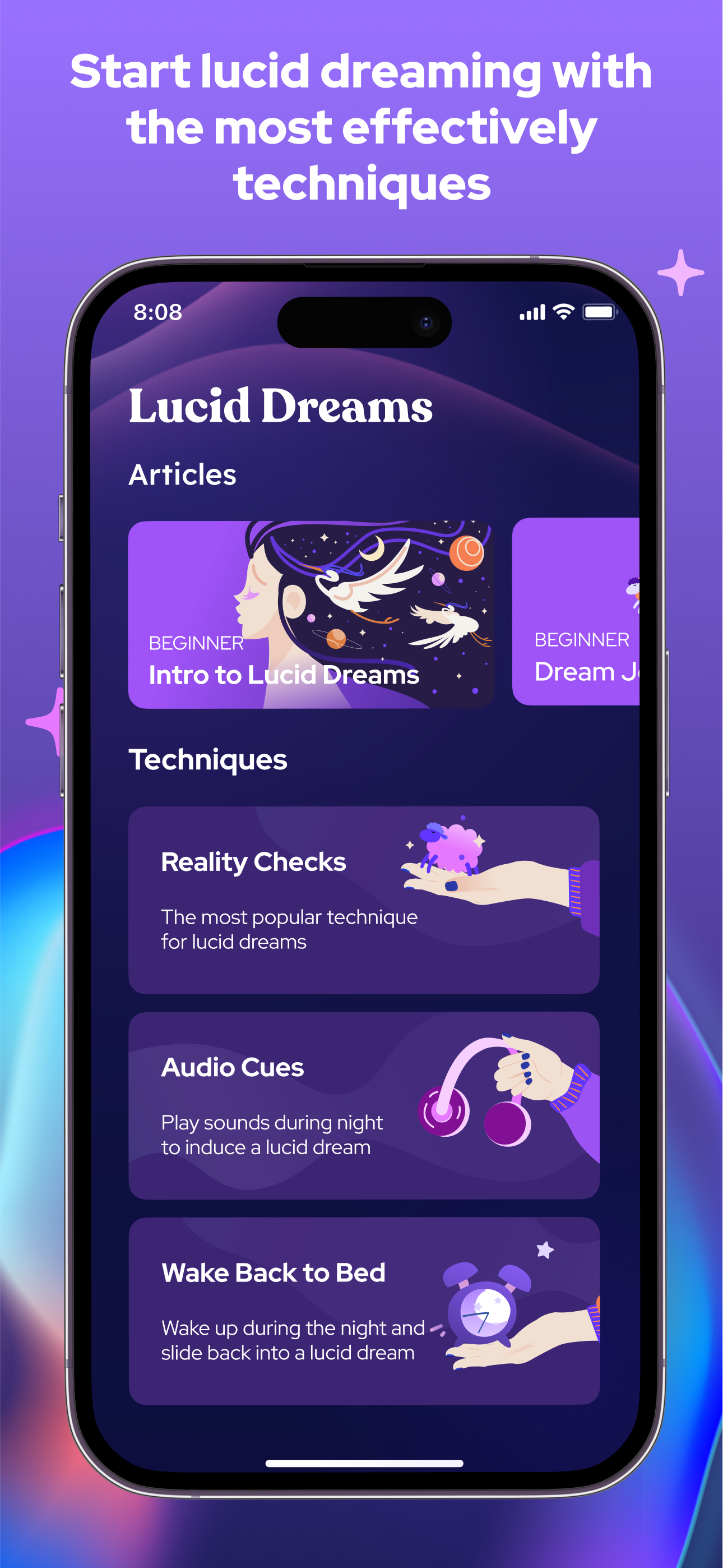
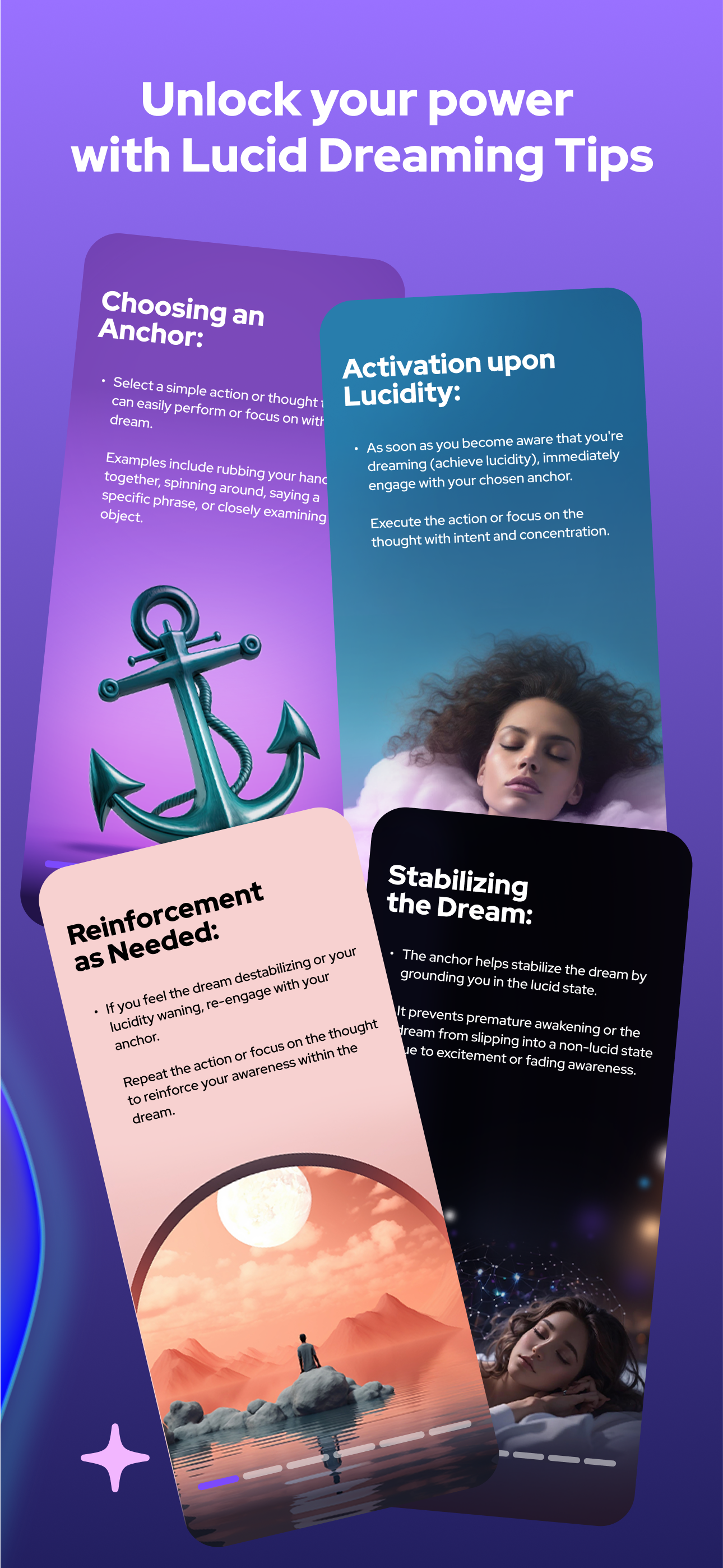
Perpetio's Dreamota app
Dreamotat’s AI dream interpretation feature allows users to interact with the app by describing their dreams. Whether it’s about taking an exam or playing basketball with friends, users simply input the details into the chatbot interface. The GPT API then processes this information, generating responses that offer psychological insights into the meaning of the dream. This personalized approach helps users uncover hidden meanings and gain deeper self-awareness through their dream experiences.
How Much Does It Cost to Build an AI Wellness App?
Determining the cost to build an AI wellness app, particularly for an MVP (Minimum Viable Product), typically ranges between $40,000 to $80,000.
However, the exact figure can vary significantly based on factors such as the app's complexity, desired features, technology stack, and development team's location and experience.
For instance, partnering with an experienced outsourcing team in Ukraine can deliver a high-quality product with cutting-edge technologies at a competitive rate, typically ranging from $35 to $50 per hour, depending on expertise and project requirements.
Main Considerations When Releasing an AI Wellness App
While AI technology undoubtedly enhances user experiences and makes our lives easier, developers and startups must prioritize ethical considerations when releasing a wellness app with AI elements.

The main considerations to go through before developing an AI-based wellness apps are:
- Plagiarism and intellectual rights: Ensure that texts and images generated by AI for responses respect intellectual property rights and are not plagiarized.
- Context and cultural background: AI responses should be inclusive and sensitive to the diverse cultural backgrounds and contexts of users.
- Avoid offensive statements and stereotypes: Implement safeguards to prevent AI from generating offensive content or using stereotypical images.
- Accuracy and authenticity: Ensure AI-generated information is accurate and avoid disseminating fake or misleading information.
- Quality of training data: Use high-quality and diverse training datasets to improve AI performance and reduce biases.
- Transparency about AI interaction: Users should be informed clearly and upfront that they are interacting with an AI system, not a human, to manage expectations and build trust.
- Health information disclaimer: Clearly communicate to users that any health information provided by the AI should be considered as additional advice and not a substitute for professional medical consultation. Include a disclaimer during onboarding or at the start of interactions with the AI, especially in a chatbot format.
- Data privacy and security: Implement measures to protect user data privacy and ensure compliance with data protection regulations such as GDPR or HIPAA, depending on the app's target audience and jurisdiction.
- User consent and opt-out options: Provide clear information about data collection practices and get consent from users. Offer options for users to opt out of data collection or to delete their data if they choose to discontinue using the app.
- Continuous monitoring and updates: Regularly monitor AI interactions to identify and address any issues related to accuracy, bias, or unintended consequences. Implement a process for ongoing updates and improvements based on user feedback and evolving best practices in AI ethics.
Taking all these parameters into account can help you build a secure, trustworthy, and effective AI-based wellness application.
Consider Perpetio Your Trusted Partner
AI is a powerful enhancement for a variety of wellness apps, from fitness and yoga to sleep, mental health, and habit tracking. Key features like personalization, pattern detection, and predictive analytics cater to almost any wellness app type, providing users with tailored and insightful experiences.
Choosing a suitable tech stack and making the right adjustments are crucial to achieving the best results for a specific use case. This is why hiring a professional development team is essential. A team lacking experience with certain AI integrations can significantly harm the user experience.
Perpetio has built AI-enhanced apps for the wellness industry, including a sleep app with AI dream interpretation, an AI exercise counter in a workout app, and an AI meditation consultant in a yoga app.
Partner with Perpetio to ensure your wellness app delivers an exceptional user experience. Contact us today to start your journey towards a smarter, more effective wellness solution.
